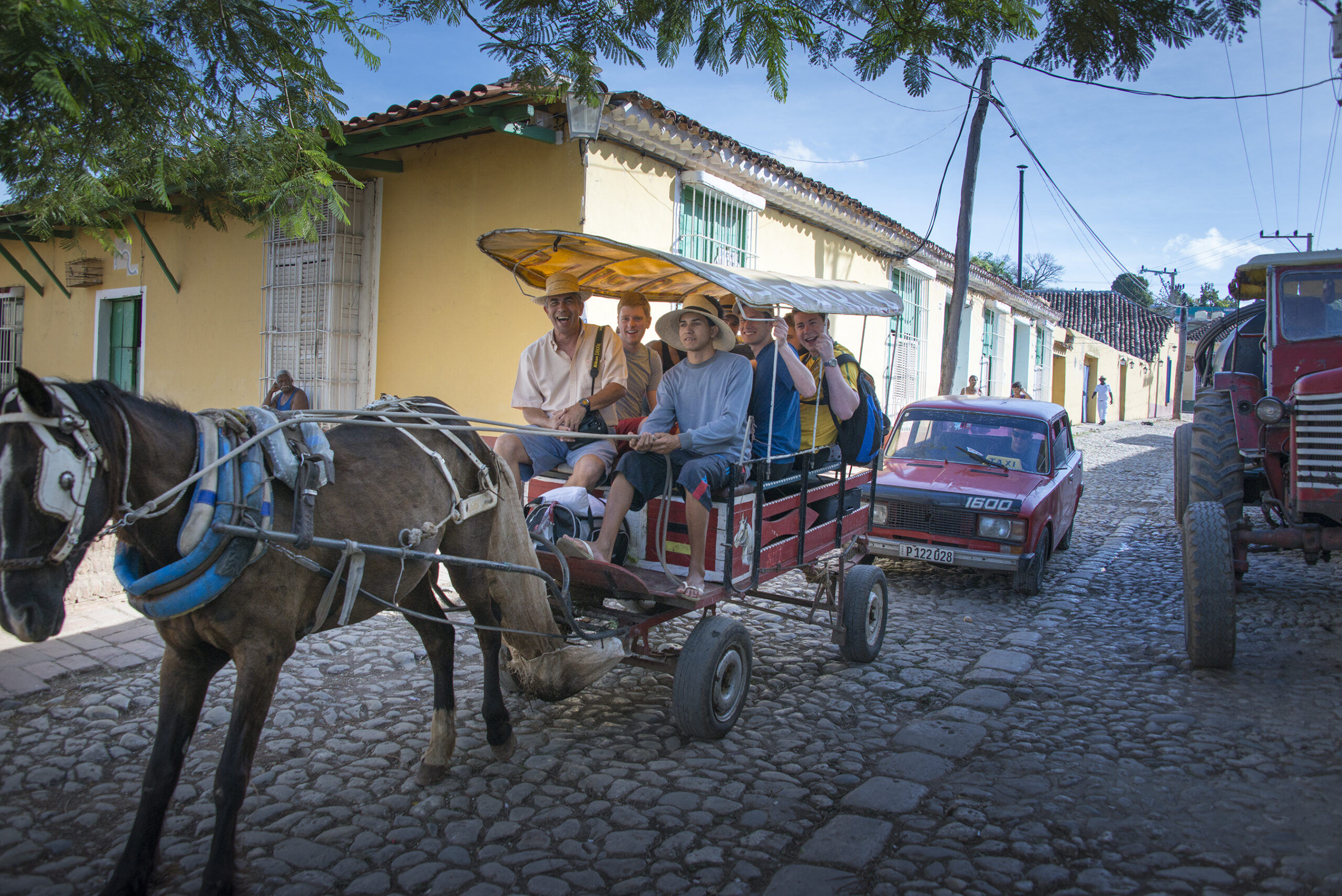The Witt University Fellows Program emphasizes the importance of being global citizens as well as local actors, which is why, since 2013, an international excursion has served an important role in the development of Witt Fellows.
Beginning in 2013, this excursion has taken the form of The Cuba Experience, a journey to our closest, most distant neighbor to better understand the complexity of our world community and our nation’s place within it. Witt Fellows in Cuba explore elements of life on the island which are usually shrouded to the American public, such as the opportunities and challenges for local entrepreneurs, resource-limited advances in medicine and engineering, critical studies in organic farming and ecotourism, modern political discourse, contemporary artistic expression and more.

WHY CUBA?
The relationship between Cuba and the United States is, to put it mildly, complicated. Despite deep historical and cultural connections dating back to before either nation declared their independence, our two governments remain estranged since the Cuban Revolution and its Cold War repercussions. Due to this chill in relations, many Americans remain profoundly unaware of the realities of daily life on the island today, and many English-language resources most widely available for a curious student give outsized focus on our political differences or the delights on offer for surface-level tourists.
While Witt Fellows do often have an opportunity to tour Havana from the seats of vibrant classic cars, the focus of The Cuba Experience is on diving below that surface to connect authentically with Cuban citizens of all walks of life. Fellows stay in the homes of Cuban families, engage with medical professionals, learn from notable academics across fields, uncover ongoing community development efforts, take in the lessons and flavors of organic farms, explore the unique biospheres of the island and hold valuable conversations about the personal histories and current endeavors of Cubans from across generations.
The history—and current environment—of Cuba is also inexorably linked to that of Alabama, at least as far back as early European contact and likely before. Conquistador Hernando de Soto’s ill-fated exploration of North America (including his conflict with the Mississippian tribe of Chief Taskalusa) was staged out of Havana. Fast forward to today, and you might be surprised to learn that Mobile is Havana’s sister city, or that a large portion of the chicken eaten on the island is imported from Alabama.
A Witt Fellow’s time in Cuba is an important bookend to their Black Belt Experience in many ways. Both Cuba and the Black Belt Region are forced to operate under resource constraints with limited political or economic influence in their wider spheres; both areas grapple with the legacy of slavery and colonialism in different ways; citizens of both areas exhibit extraordinary resiliency and creativity in the face of material shortfalls; and each space is often underrepresented in the average American’s awareness.
While the WFP cannot guarantee year by year whether Cuba may be the designated destination for Witt Fellows, the Witt Fellows Program is dedicated to an International Experience for its students which expands a Fellow’s global awareness, connects them to unheard success stories across communities, and challenges them to develop strategies to better understand unfamiliar cultures as they prepare for life-long leadership in and service to our world.
